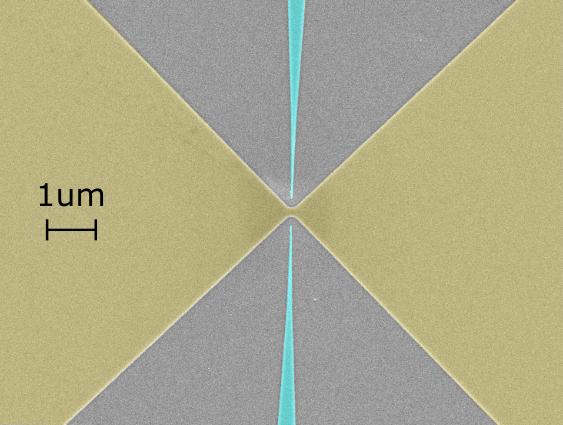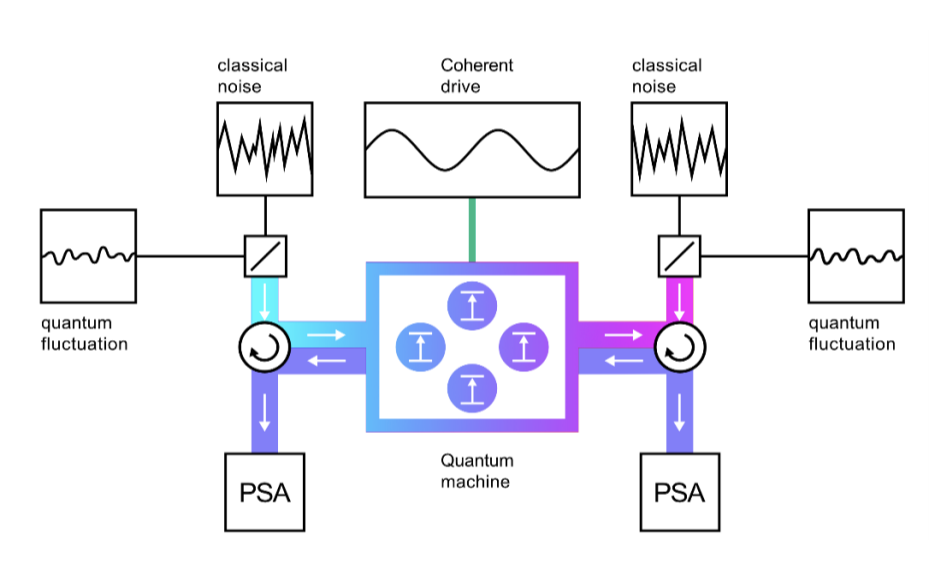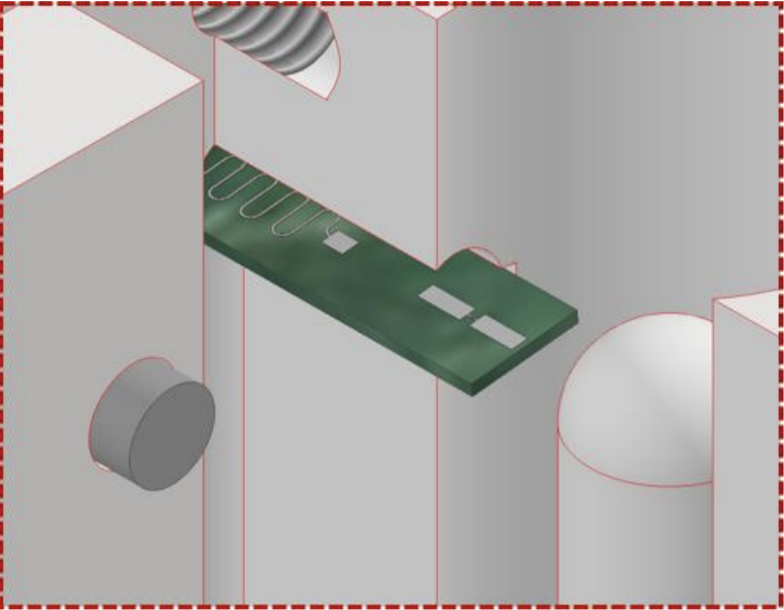Quantum-Enabling Technology

In the pursuit of scalable quantum computing, Quantum Enabling Technologies (QET) provide the essential hardware foundation. At 202Q-lab, the QET team focuses on designing, developing, and optimizing components that support quantum experiments, ranging from signal routing to amplification and system calibration.
Our Research
The team’s work centers on two key building blocks: quantum superconducting switches and quantum amplifiers, while also contributing to essential infrastructure tasks such as noise-temperature calibration, quasiparticle detector dynamics, and quantum filters.
Quantum switches are used to route signals between different parts of a quantum circuit, allowing multiple channels to share a single line. These switches play a crucial role in managing complex systems. At 202Q-lab, researchers are working toward smaller switches that do not dissipate heat when integrated in the cryostat—an important step toward scalable quantum hardware. By building these switches also from superconductors, we aim to simplify integration with superconducting qubits and massively boost scalability. The switches are designed and characterized at Chalmers, and built in collaboration with partners across Europe.
Quantum amplifiers ensure that even the faintest quantum signals can be reliably read out without compromising the information they carry. The team is developing and refining the Kinetic Inductance Traveling-Wave Parametric Amplifier (ki-TWPA) by exploring different materials and circuit designs to achieve optimal performance. These devices are fabricated at the Myfab Chalmers cleanroom facility.
In addition to this, the team supports the wider experimental effort through work on noise sources, hybrid superconducting-semiconducting devices, and microwave engineering—all essential for pushing the boundaries of quantum technologies.
The Team Behind the Science
The QET team brings together a diverse mix of post-docs and PhD students, each providing deep technical expertise:
- Ingrid Strandberg (Post-doc) – Superconducting switch development and multiplexed qubit readout
- Thomas Descamps (Post-doc) – Noise source development
- Linus Andersson (PhD student) – TWPA design and development
- Vittorio Buccheri (PhD student) – Superconducting-semiconducting hybrid devices
Collaborations
Collaboration is a central part of the QET team’s approach. The group works closely with partners across Europe and within Chalmers:
- Robert Rehammar – Microwave design (Chalmers QT Lab, ScalinQ, Sweden Quantum)
- Andrea Giachero – TWPA design (University of Milano-Bicocca)
- Spectrum (EU project) – Superconducting switch development
- JOGATE (EU project) – Superconducting switch development
Collaborate With Us
There are many exciting opportunities to get involved and help shape the future of quantum technologies. If you’re interested in contributing, don’t hesitate to reach out!
Related publications
Dynamics of Gate-Controlled Superconducting Dayem Bridges
Appl. Phys. Lett. 125, 092602 (2024)
François Joint, Kazi Rafsanjani Amin, Ivo Cools, Simone Gasparinetti
Direct detection of quasiparticle tunneling with a charge-sensitive superconducting sensor coupled to a waveguide
Kazi Rafsanjani Amin, Axel Martin Eriksson, Mikael Kervinen, Linus Andersson, Robert Rehammar, Simone Gasparinetti
arXiv:2404.01277 (2024)
Effects of fabrication routes and material parameters on the control of superconducting currents by gate voltage
Ludwig Ruf, Tosson Elalaily, Claudio Puglia, Yurii P. Ivanov, Francois Joint, Martin Berke, Andrea Iorio, Peter Makk, Giorgio De Simoni, Simone Gasparinetti, Giorgio Divitini, Szabolcs Csonka, Francesco Giazotto, Elke Scheer, Angelo Di Bernardo
APL Materials 11, 091113 (2023)
Gate control of superconducting current: Mechanisms, parameters, and technological potential
Leon Ruf, Claudio Puglia, Tosson Elalaily, Giorgio De Simoni, Francois Joint, Martin Berke, Jennifer Koch, Andrea Iorio, Sara Khorshidian, Peter Makk, Simone Gasparinetti, Szabolcs Csonka, Wolfgang Belzig, Mario Cuoco, Francesco Giazotto, Elke Scheer, Angelo Di Bernardo
Applied Physics Reviews 11, 041314 (2024)
Measurement and control of a superconducting quantum processor with a fully-integrated radio-frequency system on a chip
Mats O. Tholén, Riccardo Borgani, Giuseppe Ruggero Di Carlo, Andreas Bengtsson, Christian Križan, Marina Kudra, Giovanna Tancredi, Jonas Bylander, Per Delsing, Simone Gasparinetti, David B. Haviland
Review of Scientific Instruments 93, 104711 (2022)
Low-pass filter with ultra-wide stopband for quantum computing applications
Robert Rehammar, Simone Gasparinetti
IEEE Transactions on Microwave Theory and Techniques 71, 3075 (2023)



